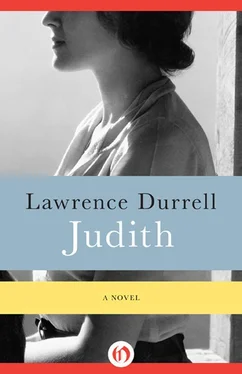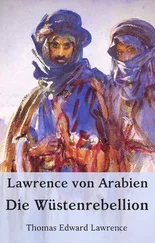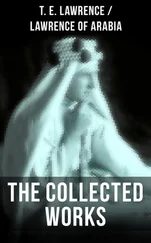It was in November that the news of the UNO vote was first broadcast to the world, and there was a night of wild rejoicing in the kibbutz. They lit a bonfire for the children and everyone danced. But on the balcony above, looking down on the scene, Miss Peterson stood grave and preoccupied, gazing at the scene of happiness below. Aaron came and stood beside her, and placed his arm on her shoulder, saying: “What is it, Pete?”
“It’s too soon for rejoicing,” she said quietly. “We shall have much to go through before we can do that.”
“Perhaps not,” said Aaron. “One never knows. But it is glorious news; Israel can now emerge at last, and with the sanction of the civilized world… Worth dancing about, my love.” But Pete sighed and shook her head. “I fear they will contest it, the Arabs.”
“Let them!” said Aaron gaily. The news had made him also faintly euphoric. But next day he too became grave, for there came news that the British were issuing orders to regroup and reform for evacuation. The young man who brought him the news added: “First Army group are off down to Haifa in a fortnight, and that leaves the valley undefended except for…
“Well,” said Aaron with a sigh, “what can we do?”
“Be on your toes.”
“We are.”
David and Saul turned the black Buick southward in the direction of Beersheba. They must, it appeared, first consult Abdul Sami about ways and means, and his place of habitation was a somewhat flexible one, David explained to Grete as they drove, consisting of large and ornate tents pitched in the middle of the desert. The whole encampment moved with the flocks, with the seasons; and with it moved his two hundred wives and his dozens of impish children. Abdul Sami was a large, prosperous-looking Arab who had had his own teeth replaced by a gold set for sheer boredom, and also to impress clients. His smile was one of the most expensive ever seen. It glittered, all gold. Despite his predilection for the desert life, he was a heavily modernized man, and owned several frigidaires, a helicopter, three Rolls-Royces of different colours, which were always getting stuck in the sand, and a complete womens’ hairdressing establishment. Here, in a long line under a marquee, one might see a dozen or so wives sitting under glittering globular dryers, while a French coiffeur walked sullenly up and down the row, and the mere concubines waited their fuzzy little turn.
When they arrived, Sami himself was sitting in the open before his state tent, being manicured by a young girl dressed as a BEA air hostess. He was expecting them, and amiably waved his disengaged hand, ordering chairs to be brought. They sat down and fell to business. It was Abdul Sami alone who could (by what mysterious feat of prestidigitation they knew not) get them in and out of Egypt on an illegal mission. The whole business was second nature to him, as he was a hashish smuggler whose fortune depended on the expertise with which he could get his loads of contraband across the Canal to his clients in Cairo.
“Yes,” he said in response to a question. “You could call it dangerous I suppose. My wives tend to worry unduly. But you know, so long as there is hashish in Syria and eager clients for it in Cairo, there will never be a completely sealed border. In the old days it was easier; and since the British installed their X-rays in order to peer into the intestines of my camels at the border, I have had to use less subtle methods. But partly by luck and partly by… He rubbed finger and thumb together. “I always find a hole in the net. My next trip will be in two days when there is no moon. If you wish, you will come with me. But if I am caught you will go to prison for smuggling, no? After all, fair is fair.”
So it was that they found themselves walking along the dark banks of the invisible Canal, accompanied by four Arabs and a heavily laden mule. Abdul Sami led the van, steering in the most professional manner upon Vega, and co-ordinating bearings with the help of an oil compass. He puffed and blew and talked far too loudly in their opinion, but presumably he knew his business. Nevertheless, sounds seemed to carry very far in the still air. The noise of twigs crackling in a distant fire came clearly to them in the stillness. Presently they halted and Abdul Sami told them to sit down and wait, an order which they obeyed with relief, for walking across the soft sand had been arduous and chilly. Even the mule showed signs of intelligence and obedience, for, once divested of its load, it lay down quietly near them and did not stir. It was pitch dark. All that they could faintly discern were the stars.
“Nothing to do but wait,” said Abdul Sami with resignation. “Pretty soon he will come.”
“Who will come?” said the long-nosed and sardonic-voiced Saul, who fiddled nervously with a safety catch on a Luger.
“The head of the Egyptian Customs, Elfi Bey Hamid,” said Sami in a courteous though laconic tone. “Who else? I pay him a big salary — much bigger than his official one.”
Saul laughed. “Well, that’s good,” he said. “Tell him I’ll double that.” Abdul Sami shook his head. “He would not work for a Jew!” he said. “He is too patriotic. But I am an Arab. For me he will do anything.”
They bantered for a while in this fashion, and suddenly David let out a sharp exclamation of surprise and awe.
“My God, what is that?” he cried, and instinctively everyone crouched down. It looked as if a castle of fireflies was advancing towards them across the desert.
“It’s a ship,” said Sami. “Stay still now.”
They could not see the outlines of the vessel itself, so dark was it. Only this colony of lights which advanced upon them without noise, as if running on silent rails. Yes, now it was nearer they caught an oily glimpse of the Suez Canal water, and heard a band playing. It was going to pass so close that they could almost touch it with an outstretched hand. A wall of lights towered up over them now, and they heard a band softly playing Noel Coward’s “I’ll see you again”; figures in evening dress revolved slowly. Just above them a man and a woman stood deep in conversation at the dark rail.
“I was not talking about love,” said the woman’s voice. “One does not talk about it, one makes it or not and that is all… When we get to India…
The wall of soft light sloped steeply away from them now, sliding down the Canal, and they saw the faint outline of a funnel or two from which, like a parting signal, there came now a deep velvety lisp of sound — like the cry of some strange animal on the darkness. The music faded. The lights dwindled. Now they were alone again, with only the dark desert around them.
“Ah, there he is,” said Sami; the sound of a small motor-boat engine was growing up from the eastern edge of the Canal.
Sami went down to the river bank and shone a light twice, grunting with satisfaction as the invisible boat changed course. In it sat a solitary figure which did not answer their questions.
“He is dumb,” said Sami. “They took his tongue.” He added the footnote carelessly as part of the general information of the day. “But he is a very good man, eh Mahmud?” He thumped the steersman on the back and paid him from a wad of notes. It took hardly five minutes to cross and they were in Egypt, walking towards the main road, where an agent was to meet them with a car. Now Sami grew even more confident of their safety, and talked and swore quite naturally as they manhauled the packages along. But they had one more fright in store for them. Suddenly, on a line of dunes ahead of them, they saw, outlined against the sky, a series of figures in silhouette. They were armed men, armed Egyptian soldiers spread out in a line, with about four metres between each one. Instinctively the Jewish party let out a gasp and fell to the ground. But Sami burst into a hoot of laughter and urged them on.
Читать дальше












